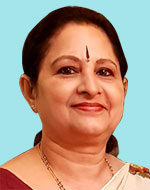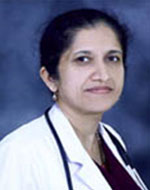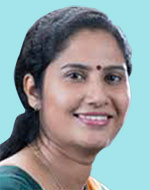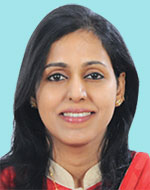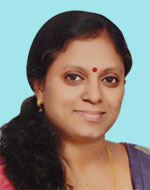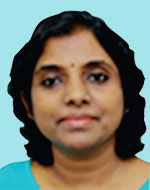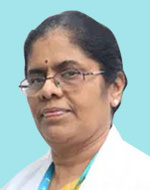Maternal Fetal Medicine Committee
The Kerala Federation of Obstetrics & Gynecology was formed in 2002 as an umbrella organization of all the societies of Kerala. The Maternal Fetal Medicine Committee was set up under the auspices of the Federation as its first committee by Professor V P Paily who was the founder chairperson of the committee. This was mainly meant to bring down the MMR in our state which was fairly high inspite of other good health indicators. To bring down the MMR, it was necessary to discover the major underlying causes of maternal death, then work on a communication and training programme to educate the obstetricians on steps to be taken to prevent these causes. The committee also felt the need to invite the attention of the state government to specific areas that require governmental remedial measures such as policy or legislative changes.
The committee felt that the Confidential Enquiry into Maternal Deaths which was successfully practiced in U K and South Africa was the most suitable for Kerala’s set up. Thus the Confidential Review of Maternal Deaths (CRMD) was started from 1st January 2004 and has been successfully continuing till the present date. All the deaths are notified to the committee in specified forms and anonymised case records maintaining confidentiality. A group of assessors were identified including seniors and middle level faculties across the state to go through the case sheets. A quarterly meeting is conducted with all the assessors to discuss and assign the cause of deaths in a confidential manner. The points of discussion are noted down. The 1st publication of Why Mothers Die Kerala was published in 2009 as the first report including Key Recommendations and Learning points which reached all the obstetricians of Kerala. The 2nd Edition was later published and now the 3rd edition is on the way. The Snippets of the quarterly meetings have also been published in KFOG journal.
The committee with the support of Liaison officer of KFOG to Govt. Dr. V. Rajasekharan Nair, and Dr. P K Sekharan, the Govt issued a G.O. making it mandatory to report all the maternal deaths to CRMD. The facility based audit of DHS also included a member of the committee and thus it was a combined effort to audit every maternal death in all the districts of the state.
When the major causes were identified, remedial measures in the form of training the obstetricians on prevention of these causes helped to bring down the MMR gradually. Subsequently Near Miss Audits were also initiated in a confidential manner which paralleled the findings of CRMD. The various programs implemented by the committee included formation of KFOG guidelines, EMergency Obstetric Care And Life Support ( EMOCALS) Workshops, Quality Standards, MDNMSR and ORRT. At present, Prof. V P. Paily is the state Co-coordinator, Dr. Ambujam K the Chairperson and Dr. Betsy Thomas the Co Chairperson of the Maternal Fetal Medicine Committee.
Obstetric Rapid Response Team [ORRT]
Rapid Response systems identify deteriorating patients and their prompt action alter their clinical tragectory.They have the potential to prevent adverse clinical outcome.
Why is it important to have rapid response system in obstetrics?
Obstetric emergencies are often unpredictable. Most often delay in timely help and lack of support from trained personnel make the situation worse. Availablity of a trained personnel in addition to usual labour room staff can prevent maternal morbidity and mortality.
Once the idea of ORRT was approved by KFOG the Government of Kerala and Health mission have supported it. Government has issued an order stating that every delivery point should have an Obstetric Rapid Response Team. Obstetric Rapid Response team consists of anaesthetists , obstetricians and trained nurses. The key players are trained nurses. One member of the team should be present 24*7.The team members should be trained in getting a vascular access and basic life support.In each district there will be nodal training centres entrusted for conducting training session.These centres are tertiary care centres from both private and public sector.After attending the one day training session, hospital can set up their rapid response team.One day session include scenario and work station based discussion and hands on training.A pouch and hand book will be provided after the training.Team members should carry the pouch while on duty, which should contain pocket mask, pocket pulsoximeter and essential items for getting a vascular access.
As of now ORRT training was conducted in all districts of the state and due to pandemic this year virtual sessions were conducted in four zones.
The availability of ORRT in every delivery point will definitely help in the effective management of obstetric emergencies.
Emergency Obstetric Care and Life Support [EMOCALS]
This venture of KFOG was proposed in the year 2010 and came into effect from May 2011 onwards as an offshoot of the learning from CRMD that most of the maternal deaths were preventable and it is the lack of quality obstetric care from the part of doctors and nurses which resulted in the preventable maternal deaths.Lack of awareness and skill in emergency obstetrics, lack of training in life support,lack of equipments and lack of personnel could result in lack of primary care when a mishap or emergency occurs and by the time the patient reaches the referral centre it would be too late resulting in a near miss or maternal death.So KFOG took up the initiative to train nurses and doctors all over the state from 2011 onwards and hence EmOCaLS D and EmOCaLS N came into effect . The chief coordinator of the programme is Dr.V.P.Paily who is also the state coordinator of the CRMD.Under his leadership EmOCaLS joined hands with NRHM and KHS to train doctors and nurses all over the state. The chairpersons,Dr.Bindu Menon (2011-2018) Dr.Neetha George(2019 till date) and 4 zonal coordinators-Dr.Lakshmiammal,Dr.Sathi MS,Dr.Jyothi Chandran,Dr,Ajith S have coordinated the programs to train almost 70%of obstetricians and about 40 % of our labour room staff.The senior obstetricians of KFOG are the regular trainers along with the critical care and anaesthetic dedicated personell which has helped us to deliver training programmes in each district.So also ,Health Secretaries,DPM,RCH officers and district coordinators helped a lot to coordinate each meeting.
EMOCALS has two components EMOCALS D and EMOCALS N
EMOCALS D
Training The Trainers The idea of these sessions were to obtain a set of 150 trainers who will be recertified every 3 years and they have to train the doctors and nurses who will need recertification every 5 years.70%passmark in the posttest was made mandatory for certification.
Training Doctors From December 2011 onwards many training sessions were conducted in groups of 40 doctors and nurses all over the state. The main training centres were Thrissur,Thiruvananthapuram, Kottayam Calicut and Kannur.These centres were equipped with 2 regional coordinators, shelves, essential mannequins, trolley bags etc. In the 2 day course, one day was designated for the high risk obstetric emergencies and the 2 nd day for the critical care team to teach the advanced life support.
EMOCALS N
Dr.Deepthy M and Dr.Betsy were the coordinators. KFOG was aware of the need for empowering nurses and nursing assistants in tackling emergencies as they are the ones available at the scene when emergency strikes.So senior and middle level nursing faculty from nursing colleges were trained with obstetric and life support procedures
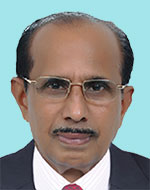
Near Miss Review
Maternal Near Miss reviews and MDNMSR in Kerala
Maternal mortality is a critical indicator of the quality of health care system.
Women who have survived complications during pregnancy and childbirth have been termed Maternal Near Miss.
In India, The Maternal Health Division, Ministry of Health and Family Welfare, Government of India, in 2014 published the "Operational Guidelines for Maternal Near Miss Review" to be implemented by all states in the country to analyze the performance of the health care system, identify the gaps and implement appropriate corrective measures.
In 2017, KFOG initiated a pilot study of maternal Near Miss cases with the guidance from Dr V Rajasekharan Nair, Dr V P Paily, Dr Ajith S. This was started in five Government Medical Colleges in Kerala, namely Thiruvananthapuram, Kottayam, Alapuzha, Thrissur and Kozhikode.
Dr Resmy C R and Dr Reena Ravindran were the State level nodal officers
Operational Guidelines 2014 by Government of India was followed and the recommended steps of review process was adopted. As an additional measure each of the near miss cases identified were anonymised and then independently assessed by a senior obstetrician of the state from a different institution ( This was done to reduce the chance of possible bias at the institutional level ). The findings were discussed in the Quarterly state level meeting held along with the CRMD meetings. Constructive feed backs were given to the respective institutions. Valuable insights were gathered into the reasons of Maternal near miss.
After 2 years of this pilot project, the findings were compiled reported to the state government and a subsequently a Government order was released regarding constitution of District level MDNMSR ( Maternal Death and Near Miss Surviellance and Response ) teams in all the districts of the state in December 2018 . The team involved the District level RCH officers , Obstetricians from Government and Private sector and started the review process in most of the districts by January 2019. All delivery points were identified and are required to participate and to report monthly MNM cases. A monthly district level review meeting is being conducted in which the salient points of near miss cases are discussed , In view of the current pandemic these meetings are being conducted in online platform.
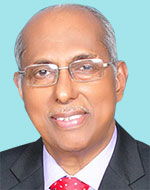
CRMD (Confidential Review of Maternal deaths)
The CRMD (Confidential Review of Maternal deaths) process has helped to identify the leading causes of maternal deaths over time in Kerala from 2004 to date. Publication of the findings of the CRMD has been helpful in disseminating the results, lessons learnt and recommendations among healthcare professionals as well as health-service administrators.
The programme is carried out under the auspices of KFOG, who provide a central secretariat. The Department of Health of the Government of Kerala supports this initiative and also issues circulars requesting that all hospitals (government as well as private) provide full details of every maternal death, complete and send in the specifically designed forms and provide a copy of the anonymised case records for analysis. To ensure anonymity during case assessment, and in the final report, each death is assigned a code number and thereafter is identified only by this number. The reporting forms used include information on social and educational characteristics of the deceased woman and her family. Hence, this is not just a case record review and helps to identify non-medical factors associated with the maternal death. The anonymised records and reports are assessed by a central review team comprising practising obstetricians drawn from different parts of the state. Non-obstetric assessors, e.g. physicians, cardiologists, anaesthesiologists, neurologists, are also included as part of the team. The analyses are collated and aggregated centrally and the number of maternal deaths, as well as causes of death and lessons learnt are published periodically. The reports and findings for the years 2004–09 were published as Why Mothers Die, Kerala in two reports. The third report will be released soon. The committee members and assessors provide their services free of charge. Other expenses are met by KFOG, which raises funds for this through its academic activities.
The committee collects data through different channels, the most important being the mandatory reporting by the medical team that looked after the deceased woman. The committee also gets information from media reports, district medical officers and the Directorate of Health Services. However, it is clear that some deaths are missed, reflecting a degree of complacency in the reporting system. The committee is able to review only those cases where the case records and reporting forms are available. However, analysis of the available records has still provided sufficient insight into the causes of maternal deaths and the background and social factors that could have contributed to these deaths to enable recommendations to be developed.
In 2012, the international arm of the UK National Institute for Health and Care Excellence (NICE) partnered with the government of Kerala, the NRHM and KFOG to work to improve the obstetric care in the state through developing standards based on evidence-based clinical guidelines. As a first step, and using the findings from the CRMD, two key areas were identified: haemorrhage and hypertension. Accordingly, five steps of intervention were proposed for each of the conditions, subsequently maternal deaths due to these causes have come down in the state. Near Miss reviews have been identified as complementary to maternal death audit and are conducted regularly along with CRMD under the aegis of MDNMSR ( Maternal Death and Near Miss Surveillance and Response ). With all these we target to achieve the motto: ‘MMR of 20 by 2030 ’.
Maternal Death Near Miss Surveillance (MDNMSR)
Maternal Mortality (MMR) is defined as the number of maternal deaths per one lakh live births.It is a sensitive index of the standard ofhealth care of a community, State or Nation. That is why WHO and all national bodies strive to achieve low MMR. Along with the maternal deaths the mothers who suffered severe acute morbidity (Near misses ) should also be considered. Pregnancy related morbidity and mortality has a huge impact on the society, lives of women and their newborn babies.
The causation of maternal mortality is multi factorial and activities aiming at reduction of MMR require an insight into the various causative factors and demands collective efforts at various levels. The same applies to maternal near misses also. Hence it is customary to conduct maternal deaths and Near miss audits of various kinds to ponder over the causation of the deaths and Near misses. In 2018, KFOG decided to decentralize the audits and activities to the district level and thus MDNMSR was born.
As per WHO,Maternal Death and Surveillance Response activities (MDSR) are aimed at eliminating preventable maternal deaths. KFOG has added near miss audit to it making it MDNMSR(Maternal Death and Near Miss Surveillance Response) so that the analysis and learning process attains new dimensions.
Levels of Organisation of MDNMSR Activities of Kerala
Organized at the state as well as district levels
The district MDNMSR team
The district team is under the District Collector
RCH Officer is the convener.
KFOG is represented by one MDNMSR district captain and 3 vice captains
District captain is responsible for co ordinating the activities of the district The responsibilities of the District Team is to ensure prompt reporting of the maternal deaths and near miss cases to the state team so that audit process is made flawless.
Monthly MDNMSR District meetings
Conduct of the meeting
RCH Officer convenes the meeting and the meeting is presided by the district collector or an officer assigned by the district collector. The superindendants of all delivery points also attend the meeting, representing the administrative machinary. Representing each delivery point,one gynaecologist attends. The day of the monthly meeting is fixed for each district.
Agenda of the Meetings
The RCH Officer presents the statistics for the month, and the maternal mortality statistics with causes of death as assigned.
The detailed discussions on the mortality cases are purposefully avoided as a policy matter for fear of breach of anonimity. Instead, the summary of the maternal deaths once analysed by the CRMD committee is made available to the district team as’ Snippets’. They are discussed in the district meetings as a part of awareness and continuing medical education.
The near miss cases for the month are presented either by the concerned hospital or by the vice captain.Senior members of the profession who attend these meetings without fail analyse the cases and emphasise on the management strategies that would have made a difference in the outcome.
The near miss case sheets are then sent to the concerned state authority.
In short these MDNMSR meetings sensitise the obstetricians on the gravity and causation of maternal deaths and about the changes to be made in the protocols they follow.
The minutes of the meeting containing the near miss cases and the learning points are posted in the district as well as the state group so that all members of the state get benefitted.
There are 17 District MDNMSR groups and each group had conducted 14 to 23 district level meetings

